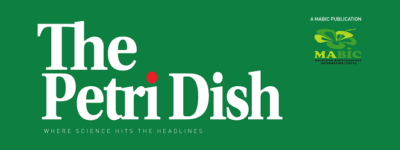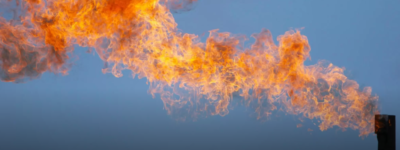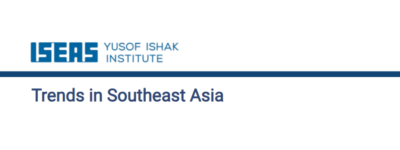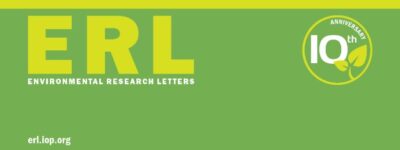WHY DOES CERAH CARE ABOUT METHANE?
Malaysians are breathing highly polluted air. For the past decade, Malaysia’s annual average PM10 concentrations have been consistently well above the World Health Organisation’s guideline. Much of the pollution we breathe in is linked to key GHG gas emissions: methane and co-emitted pollutants from oil and gas (O&G) operations contribute to the formation of ground-level ozone and particle pollution, and GHG emissions from fire and haze pollution are usually linked to land-use change for agribusiness sectors like palm oil. Malaysia has signed the Global Methane Pledge at the 26th Conference of the United Nations Framework Convention on Climate Change. Both pledges relate to crucial emissions sectors in Malaysia: Petronas, Malaysia’s national O&G company, is the third-largest national oil company in the world by total assets, while Malaysia is anticipating another 0.3 million hectares of land-use change for palm oil plantations before it reaches its declared cap of 6.5 million hectares.
According to Malaysia’s most recent UNFCCC emissions inventory, fugitive emissions from the O&G sector are the highest contributor to methane emissions (However, the Global Methane Pledge commits to action between 2020 and 2030, and it is therefore extremely important that the government implements this pledge.
Yet, it remains unclear how Malaysia’s climate change policies and commitments at both the national and regional levels will support government and corporate methane action to achieve the globally pledged 30% reduction by 2030. At the same time, there is low awareness among the Malaysian public on the link between methane, air pollution, health, and climate change, leading to apathy and limiting policy ambition. Greater public concern for air pollution, and steps to reduce it, should lead to reducing all GHGs as the public could be motivated by the local co-benefits of improved air quality and health.
what is the global methane pledge?
The Global Methane Pledge is a voluntary commitment launched at COP 26 in November 2021 in Glasgow. The Pledge now has 150 signatories, including Malaysia, working collectively to reduce global methane emissions across all sectors by at least 30% below 2020 levels by 2030.
The Pledge is a global effort to reduce methane emissions and support existing initiatives. It aims to advance technical and policy work to support domestic actions and recognizes the important role of the private sector, development banks, financial institutions, and philanthropy in implementing the Pledge.
Participants joining the Pledge agreed to take voluntary actions to contribute to a collective effort to reduce global methane emissions at least 30 percent from 2020 levels by 2030, which could avoid over 0.2˚C warming by 2050. This was a global, not a national reduction target. Participants also committed to moving towards using the highest tier IPCC good practice methodologies in reporting of national emissions, as well as working to continuously improve the accuracy, transparency, consistency, comparability, and completeness of national greenhouse gas inventory reporting under the UNFCCC and Paris Agreement, and to provide greater transparency in key sectors.
the goal
The Pledge is a global effort to reduce methane emissions and support existing initiatives. It aims to advance technical and policy work to support domestic actions and recognizes the important role of the private sector, development banks, financial institutions, and philanthropy in implementing the Pledge.
CERAh’s part
CERAH’s work with air quality pollution makes us the perfect collaborator for contributing directly to methane emissions research, as they relate to the formation of ozone pollution, often co-emitted with other harmful pollutants.
the full pledge
RESOURCES ON METHANE

Understanding methane emissions | International Energy Agency
Excerpts from the Global Methane Tracker 2023 shed light on the growing concerns of methane emissions while showcasing best practices from across the globe in providing transparent data to aid in decision-making.

Reducing emissions in Malaysia – Methane as a policy priority? | The Petri Dish
CERAH researchers examine methane reduction opportunities within the Malaysian context by diving into the sectoral emission sources and the policies that govern them.

Methane: A crucial opportunity in the climate fight | Environmental Defense Fund
The nonprofit organisation sets the precedent to combat climate change by exploring the whys and hows of methane reduction.
 Understanding and Reducing Methane Emissions in Southeast Asia | ISEAS – Yusoff Ishak Institute
Understanding and Reducing Methane Emissions in Southeast Asia | ISEAS – Yusoff Ishak Institute
This article offers a succinct overview of the methane emissions landscape within the region and proposes the need for collaborative efforts at the sectoral level to effectively reduce methane emissions.
 Acting rapidly to deploy readily available methane mitigation measures by sector can immediately slow global warming | Environmental Research Letters
Acting rapidly to deploy readily available methane mitigation measures by sector can immediately slow global warming | Environmental Research Letters
The benefits of deploying methane mitigation measures in the near future may far outweigh the consequences if action is delayed, as this study suggests.
 What is methane pollution? | Clean Air Task Force
What is methane pollution? | Clean Air Task Force
This explainer video provide a brief overview on what methane is, how its significantly contributing to global warming, and how policymakers are trying to stop it.
 The fastest way to slow down climate change | TED Talk
The fastest way to slow down climate change | TED Talk
Atmospheric scientist Ilissa Ocko presents a compelling narrative to shift our focus on methane reduction measures as a means to combat climate change.
